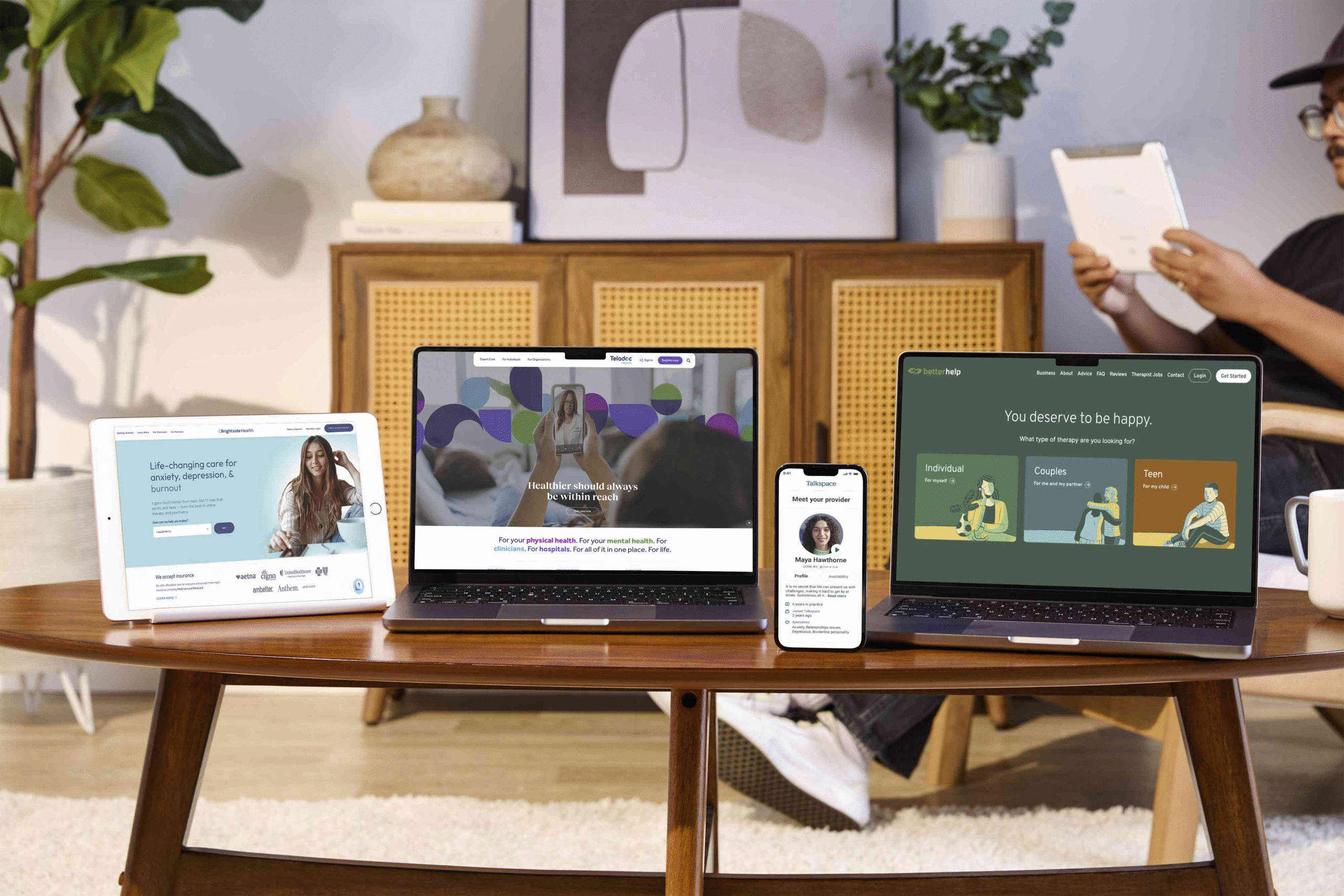Online Therapy for Anxiety and Depression: Effective Solutions for Mental Health Support
Online therapy for anxiety and depression offers a convenient and accessible way for individuals to receive professional mental health support from home. It combines counseling, psychiatric care, and personalized treatment plans to help manage symptoms effectively without the need for in-person visits. This approach makes it easier for people to get consistent care, especially when facing barriers like busy schedules, geographical distance, or stigma.
Many platforms provide licensed therapists and psychiatrists who specialize in anxiety and depression, ensuring tailored care for different needs. Clients can expect structured programs, ongoing support, and flexible communication methods such as video calls or messaging. This flexibility allows people to engage in therapy at their own pace while maintaining privacy and comfort.
By using online therapy, individuals have the opportunity to access a variety of treatment options including medication management, cognitive behavioral therapy, and coping strategies for immediate symptom relief. Many services also offer insurance coverage or affordable rates, making mental health care more attainable for a broader audience.
Understanding Online Therapy for Anxiety and Depression
Online therapy offers structured programs and professional support through digital platforms. It combines various therapeutic methods tailored specifically for anxiety and depression, providing flexibility and accessibility. Understanding its format, approach, and effectiveness helps individuals choose the right treatment path.
What Is Online Therapy?
Online therapy delivers mental health care through video calls, phone, messaging, or app-based platforms. Licensed therapists guide clients using evidence-based techniques without requiring in-person visits. This mode reduces barriers like transportation, scheduling conflicts, and stigma.
Treatment often incorporates cognitive-behavioral therapy (CBT), mindfulness, and personalized coping strategies. The technology also enables continuous support through asynchronous communication or scheduled sessions. Platforms may include self-help resources, progress tracking, and secure data handling for client confidentiality.
How Online Therapy Addresses Anxiety
Online therapy targets anxiety by teaching skills to manage worry, panic, and avoidance behaviors. Techniques often center around CBT, which helps identify and challenge negative thought patterns triggering anxiety.
Exposure exercises can be facilitated remotely, allowing gradual engagement with feared situations in a controlled environment. Mindfulness practices are frequently integrated to reduce physiological arousal and improve emotional regulation. Furthermore, virtual sessions enable real-time support during anxiety episodes, increasing accessibility to coping tools.
How Online Therapy Supports Depression
For depression, online therapy focuses on improving mood, motivation, and daily functioning. Therapists guide clients through behavioral activation to counteract withdrawal and inactivity often seen in depression.
Cognitive restructuring helps modify persistent negative beliefs about oneself and the future. Programs may also blend mindfulness and somatic interventions to address physical and mental symptoms. Ongoing virtual support encourages accountability and progress monitoring, vital for overcoming depressive symptoms.
Comparing Online and In-Person Therapy
Both online and in-person therapy offer effective treatments but differ in delivery and convenience. Studies show online therapy can be as effective as face-to-face care for many individuals dealing with anxiety and depression.
Online therapy enhances access, especially for those in remote areas or with mobility issues. However, some may prefer in-person interaction for non-verbal cues and immediate emotional rapport. Safety considerations differ; online platforms require robust privacy measures, while direct sessions allow immediate crisis intervention if needed.
| Aspect | Online Therapy | In-Person Therapy |
|---|---|---|
| Accessibility | High, from any location | Limited by geographic location |
| Scheduling Flexibility | Often more flexible | Fixed appointment times |
| Privacy | Secure digital encryption | Private room setting |
| Personal Interaction | May lack some non-verbal cues | Full non-verbal communication |
| Crisis Intervention | Limited immediate response | Immediate therapist presence |
Choosing and Maximizing Online Therapy
Selecting the right online therapy involves assessing several key factors such as platform features, therapist qualifications, and treatment methods. Success in online therapy also depends on how well individuals engage with the process through planning and preparation.
Finding the Right Platform and Therapist
When choosing an online therapy platform, it’s important to look at therapist credentials, types of therapies offered, and patient reviews. Platforms that provide clear information on licensing and specializations enhance trust and comfort.
Accessibility features such as easy scheduling, secure messaging, and mobile app availability contribute to a smoother experience. Broad insurance acceptance and transparent pricing are practical factors to consider.
Searching for therapists who specialize in anxiety and depression ensures tailored care. Many platforms offer options to switch therapists if the initial match isn’t effective, allowing flexibility in treatment.
Therapeutic Approaches Used Online
Cognitive Behavioral Therapy (CBT) is commonly used online due to its structured nature, making it effective for anxiety and depression. Other approaches include Dialectical Behavior Therapy (DBT), Acceptance and Commitment Therapy (ACT), and mindfulness-based methods.
Online therapy may also integrate medication management for those needing pharmaceutical support. Providers combining therapy and medication offer comprehensive care.
The choice of approach depends on client needs and therapist expertise. Many platforms allow specifying preferences, helping individuals find therapy styles that match their comfort and goals.
Tips for Successful Online Sessions
Preparation is key to maximizing online therapy benefits. Clients should choose a quiet, private environment with a reliable internet connection to minimize distractions.
Consistent scheduling helps build routine and accountability. Writing down thoughts or concerns before sessions can improve communication efficiency.
Active participation during sessions, including openness and honesty, enhances therapy outcomes. Utilizing platform features like messaging between sessions allows continuous support.
Setting realistic goals and regularly reviewing progress assists in maintaining motivation and tracking improvement.






